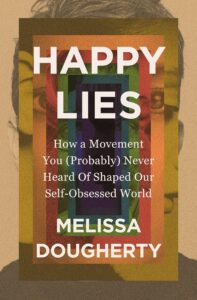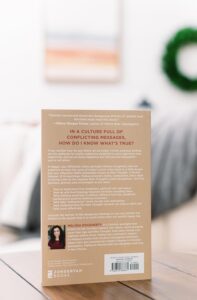There’s an epidemic spreading through our culture, one that doesn’t require masks or social distancing to contain. It’s not transmitted through airborne particles, but through carefully crafted words designed to make us feel good about ourselves. I call it Ear Tickling Syndrome (ETS), and chances are, you’ve encountered it today.
The Apostle Paul warned Timothy about this phenomenon nearly two thousand years ago: “For the time will come when people will not put up with sound doctrine. Instead, to suit their own desires, they will gather around them a great number of teachers to say what their itching ears want to hear” (2 Timothy 4:3). Paul wasn’t describing a future possibility—he was diagnosing a timeless human tendency that feels remarkably relevant in our age of algorithm-driven content and echo chambers.

The Anatomy of Ear Tickling
Ear Tickling Syndrome manifests when we systematically choose information, perspectives, and voices that confirm what we already believe rather than challenge us to grow. It’s the intellectual equivalent of eating only dessert—temporarily satisfying but ultimately malnourishing.
The symptoms are subtle but pervasive:
Confirmation Bias Amplification: We seek out news sources, social media feeds, and friend groups that reinforce our existing worldview. The algorithm-driven nature of modern media makes this easier than ever, creating personalized reality bubbles where our opinions are constantly validated.
Truth Avoidance: When confronted with information that challenges our beliefs or makes us uncomfortable, we instinctively turn away. We change the channel, unfollow the account, or dismiss the source as biased—often without engaging with the actual content.
Comfort Seeking: We gravitate toward messages that make us feel good about our choices, lifestyle, and beliefs, even when those messages might be leading us away from personal growth or difficult but necessary changes.
Authority Shopping: Like Paul’s warning about gathering teachers who tell us what we want to hear, we shop around for experts, influencers, and authorities who validate our predetermined conclusions rather than challenge us with inconvenient truths.
The Modern Marketplace of Pleasant Deceptions
Today’s media landscape is perfectly designed to enable ETS. Social media algorithms learn our preferences and serve us content that keeps us engaged—which usually means content that confirms our existing beliefs and triggers emotional responses. News outlets compete for our attention in an oversaturated market, often by telling us what we want to hear about our political opponents or social issues we care about.
The wellness industry provides a particularly clear example. Faced with the uncomfortable truths about health—that sustainable weight loss requires long-term lifestyle changes, that aging is inevitable, that some problems can’t be solved with supplements—many people gravitate toward miracle cures, quick fixes, and products that promise easy solutions. The market responds by providing an endless stream of ear-tickling alternatives to medical consensus.
Religious communities aren’t immune either. The “prosperity gospel” that promises wealth and health to believers, or the self-help spirituality that focuses exclusively on personal empowerment while avoiding discussions of sacrifice, service, or moral challenge, represents exactly what Paul warned against: teachers who tell people what their itching ears want to hear.
The Cost of Comfortable Truth
ETS might feel harmless—after all, who doesn’t want to feel good about themselves?—but it extracts a significant cost:
Stunted Growth: Personal development requires confronting uncomfortable truths about ourselves. When we consistently avoid challenging feedback, we remain stuck in patterns that limit our potential.
Weakened Relationships: Authentic relationships require honesty, including difficult conversations. ETS leads us to surround ourselves with people who won’t challenge us, resulting in shallow connections built on mutual flattery rather than genuine care.
Poor Decision-Making: Reality doesn’t adjust to our preferences. When we base decisions on pleasant fictions rather than accurate information, we set ourselves up for failure and disappointment.
Polarized Society: On a societal level, ETS contributes to political and cultural polarization. When entire groups of people consume only information that confirms their worldview, meaningful dialogue across differences becomes nearly impossible.
Spiritual Stagnation: Whether you approach this from a religious or philosophical perspective, growth requires wrestling with difficult questions and uncomfortable truths. ETS keeps us in a state of perpetual spiritual adolescence.
Breaking Free: The Discipline of Truth-Seeking
Overcoming ETS requires intentional effort and discipline. It means developing what we might call “intellectual courage”—the willingness to engage with ideas that make us uncomfortable.
Seek Diverse Perspectives: Intentionally expose yourself to viewpoints that challenge your assumptions. Read authors who disagree with you. Engage with news sources across the political spectrum. Listen to podcasts that make you think rather than just confirm what you already believe.
Embrace Discomfort: When you feel that initial resistance to an idea or piece of feedback, pause. Ask yourself whether you’re rejecting it because it’s actually wrong or because it’s uncomfortable. Some of the most valuable truths are also the most difficult to accept.
Question Your Sources: Pay attention to who you’re listening to and why. Are you drawn to certain teachers, influencers, or authorities because they challenge you to grow, or because they tell you what you want to hear? The best mentors often make us uncomfortable.
Practice Self-Examination: Regularly reflect on your beliefs and motivations. Are you holding certain positions because you’ve carefully examined them, or because they’re convenient or comfortable? This kind of intellectual honesty is difficult but essential.
Value Long-Term Growth Over Short-Term Comfort: Remember that temporary discomfort often leads to lasting growth. The medicine doesn’t always taste good, but that doesn’t mean it’s not good for you.
The Paradox of Pleasant Truth
Here’s what’s remarkable about Paul’s ancient warning: he wasn’t advocating for pessimism or self-flagellation. The “sound doctrine” he encouraged Timothy to preach wasn’t meant to be deliberately harsh or unpleasant. Rather, he was pointing out that truth—even difficult truth—ultimately serves our best interests, while pleasant lies lead us away from flourishing.
The most profound truths are often initially uncomfortable but ultimately liberating. The truth that we’re not perfect opens the door to growth. The truth that we can’t control everything leads to peace and acceptance. The truth that meaningful relationships require effort and sacrifice makes genuine connection possible.
A Call to Intellectual Courage
Ear Tickling Syndrome isn’t just a personal problem—it’s a cultural challenge that affects how we engage with politics, relationships, health, spirituality, and every other important area of life. In an age of infinite information and algorithmic curation, the temptation to live in a bubble of pleasant confirmations has never been stronger.
But we have a choice. We can continue to seek out voices that tell us what we want to hear, or we can develop the intellectual courage to engage with truth, even when it’s uncomfortable. We can build communities based on mutual flattery, or we can cultivate relationships deep enough to include honest feedback and challenging conversations.
The path forward isn’t about becoming cynical or suspicious of everything that makes us feel good. It’s about developing the wisdom to distinguish between truths that are difficult but necessary and lies that are pleasant but harmful. It’s about valuing growth over comfort, depth over ease, and long-term flourishing over short-term gratification.
Paul’s warning to Timothy was ultimately an expression of love—love for individuals who deserve to hear truth that will help them grow, and love for communities that function best when built on solid foundations rather than pleasant illusions.
In our age of ear-tickling abundance, perhaps the most counter-cultural thing we can do is develop an appetite for truth, even when it doesn’t taste as sweet as we’d like. Our ears might prefer to be tickled, but our souls long to be transformed.
Hey there! We hope you love our fitness programs and the products we recommend. Just so you know, Symku Blog is reader-supported. When you buy through links on our site, we may earn an affiliate commission at no extra cost to you. It helps us keep the lights on. Thanks.
Disclaimer: The information provided in this discussion is for general informational and educational purposes only. It is not intended as medical or professional advice. Only a qualified health professional can determine what practices are suitable for your individual needs and abilities.


